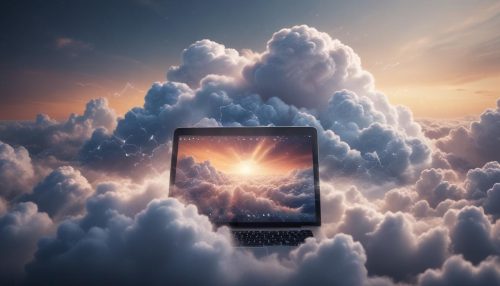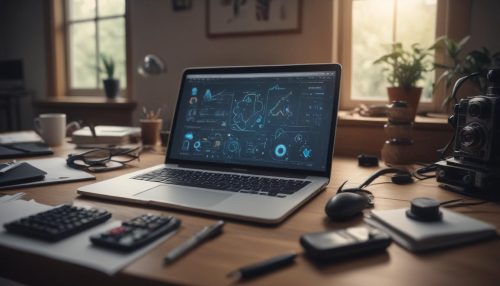The Psychology Behind Digital Cleanups
Brian Taylor July 21, 2025
In the age of constant notifications, emails, apps, and files scattered across multiple devices, it’s easy for our digital lives to become cluttered. Just like physical clutter, digital clutter has a psychological impact, leading to stress, decreased productivity, and even feelings of being overwhelmed. The growing trend of digital cleanups reflects a need to regain control over our devices, improve mental well-being, and increase efficiency.
But what exactly is happening psychologically when we engage in a digital cleanup? Why does it feel so satisfying to declutter our devices, and how does it benefit us both mentally and emotionally? In this article, we will explore the psychology behind digital cleanups, why they are crucial, and how they can improve our lives in a digital-first world.

The Psychology of Clutter: Understanding the Mind-Device Connection
1. Clutter Creates Cognitive Load
When we think of clutter, we usually imagine a messy desk or a cluttered room. However, digital clutter also has an impact on the brain. Cognitive load refers to the mental effort used to process information. Too much clutter—whether digital or physical—requires more cognitive resources to process. This constant mental “load” can leave us feeling exhausted and overwhelmed.
Studies from Stanford University show that an overload of information, such as unorganized digital files, unread emails, and constant notifications, can impair our decision-making ability. The brain expends significant energy just trying to maintain a sense of order, which can lead to burnout. Digital cleanups reduce this cognitive load by providing clarity and organization, allowing the mind to focus on more important tasks.
2. The Impact of Unchecked Digital Distractions
Digital distractions are everywhere. From emails to text messages, the constant barrage of information often fragments our focus. According to a University of California, Irvine study, it takes about 23 minutes and 15 seconds to fully regain focus after an interruption. A cluttered digital environment, with multiple open tabs, notifications, and apps, increases the likelihood of these distractions, which not only disrupts our productivity but also heightens feelings of stress and anxiety.
Engaging in regular digital cleanups helps reduce distractions by organizing your workspace, silencing unnecessary notifications, and decluttering your devices. This creates a more focused environment, enabling you to be more present and productive throughout the day.
3. Emotional Attachment to Digital Items
Just as we form emotional attachments to physical possessions, we can develop a similar bond with digital files, photos, and apps. For example, a person might hold onto old emails or photos from past experiences, even though they no longer serve a purpose. This emotional attachment can make it difficult to let go of digital clutter, even if it’s no longer necessary.
Psychologists refer to this as sentimental clutter—where we hold onto items because they represent memories or experiences. While it’s natural to want to keep cherished items, holding on to unnecessary digital clutter can create a sense of stagnation. Engaging in a digital cleanup helps you objectively evaluate what to keep and what to delete, creating a sense of emotional release and freedom.
Why Digital Cleanups Are Good for Mental Health
1. Improved Mental Clarity
When our devices are cluttered with old files, apps, or tabs, it can create a sense of mental chaos. According to research from the Journal of Environmental Psychology, clutter—whether physical or digital—can lead to feelings of anxiety, frustration, and decreased concentration. Digital cleanups help remove this chaos, creating a cleaner, more organized space that allows for clearer thinking and better decision-making.
By archiving old files, deleting unused apps, and organizing your desktop, you give yourself more mental space to focus on what truly matters. The resulting sense of order promotes a sense of calm and clarity.
2. Reduced Stress and Overwhelm
One of the key reasons people procrastinate on digital cleanups is the overwhelming nature of the task. It feels like there’s too much to do, and as a result, we avoid it. This avoidance only increases the mental burden.
However, once you take the first step toward organizing your digital life—whether it’s clearing your inbox or decluttering your desktop—it often leads to an immediate sense of relief. A study from the University of California found that people who reduce clutter report feeling less stressed and more in control of their environments. Digital cleanups allow you to take control of your space and reduce the stress caused by disorder.
3. Boosted Productivity
A clean and organized digital environment naturally leads to higher productivity. When your devices are clutter-free, you spend less time searching for files, managing unnecessary notifications, or navigating disorganized apps. As a result, you can complete tasks more efficiently and with greater focus.
According to a report by McKinsey & Company, workers spend an average of 28% of their workweek managing emails and searching for information. By organizing your digital life, you reduce this wasted time and free up more hours to focus on meaningful tasks.
Practical Steps for a Successful Digital Cleanup
1. Declutter Your Email Inbox
Your inbox is often the first place where digital clutter accumulates. Unread emails, promotional messages, and old threads can quickly overwhelm you.
- Action Tip: Unsubscribe from unwanted newsletters and delete old threads. Use email management tools like Clean Email or Unroll.me to unsubscribe from irrelevant sources easily. Organize important emails into folders for easy retrieval.
Why This Helps: An organized inbox helps reduce the feeling of being overwhelmed by an endless stream of incoming messages. It allows you to focus on what matters without distractions.
2. Organize Your Desktop and Files
A cluttered desktop or disorganized folder structure can make it difficult to find the files you need, leading to frustration and wasted time.
- Action Tip: Sort your files into logical folders (e.g., work, personal, projects). Delete files you no longer need, and use cloud storage platforms like Google Drive or Dropbox to keep files accessible yet tidy.
Why This Helps: A clean desktop leads to improved mental clarity, allowing you to focus on the task at hand rather than getting distracted by clutter.
3. Streamline Your Apps and Notifications
With numerous apps and notifications pinging you constantly, it’s easy to become distracted. Remove apps you no longer use and manage your notifications.
- Action Tip: Go through your phone or computer and delete unused apps. Use tools like Focus Mode or Do Not Disturb to silence non-urgent notifications during deep work periods.
Why This Helps: Reducing distractions allows you to maintain focus and promotes a sense of control over your digital environment.
4. Regular Digital Cleanups
Digital clutter builds up over time, so make digital cleanups a regular habit. Set aside time each month to clean your email inbox, organize files, and declutter apps and devices.
- Action Tip: Schedule a monthly digital cleanup day where you evaluate and organize your digital spaces. This can include backing up important files, deleting old data, and organizing your devices.
Why This Helps: Regular cleanups ensure your digital spaces stay organized, preventing clutter from building up and overwhelming you.
The Psychology of Digital Minimalism
The concept of digital minimalism, popularized by author Cal Newport, advocates for intentional use of technology to reduce unnecessary digital clutter and distractions. Digital minimalism encourages users to focus on high-value digital activities while eliminating distractions that drain mental energy.
By applying principles of digital minimalism, individuals can free themselves from the constant stream of digital distractions and reclaim their time and mental clarity. Newport’s research supports the idea that reducing digital clutter leads to a more intentional, productive, and fulfilling digital life.
Conclusion
The act of decluttering our digital spaces is more than just a practical exercise—it has profound psychological benefits. Reducing digital clutter alleviates cognitive load, reduces stress, boosts productivity, and enhances mental well-being.
As our digital lives continue to expand, it’s essential to make digital cleanups a regular part of our routines. By organizing emails, files, apps, and notifications, we can create a more manageable and focused digital environment that helps us thrive in both our professional and personal lives.
Reference
- Cleveland Clinic – Digital Clutter and Mental Health – http://gulfcoastnewsnow.com
- Lifecycle Transitions – Digital Hoarding and Mental Health – https://lifecycletransitions.com
- Ahead App – The Science of Digital Decluttering – https://medium.com





